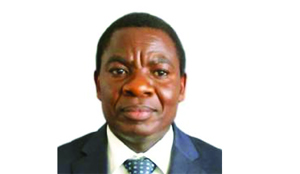By KENNEDY MUPESENI –
THE power generation has risen to 1,573 megawatts (MW) narrowing the deficit to 327 MW on the national peak demand of 1,900 MW.
This is attributable to the high rainfall that has characterised the 2016/2017 rain season.
The power deficit has dropped from 1000 MW to 327 MW during peak periods due to the increased water levels.
Energy Minister David Mabumba said total national generation now stands at about 1,573 MW against the current peak demand of 1,900 MW.
“The nation had during this season recorded some increase in its electricity generation capacity due improved water levels in water reservoirs particularly at Kafue Gorge Power Station whose generation has increased from 630 MW to about 820MW,” he said.
Kariba North Bank is currently generating an average of 380 MW against the installed capacity of 1,080 MW while Victoria Falls Power Station is contributing 103 MW out of the installed capacity of 108 with small hydro stations giving out 15 MW.
He said going forward, electricity generation in the country was expected to stabilise looking at the any projects currently being implemented.
Mr Mabumba said Maamba Collieries is operating at 50 per cent at 130 as the other unit is undergoing routine maintenance and that Lunsemfwa hydro is 18 per cent available with an output of 10 MW.
The other one among independent power producers is Ndola Energy phase one which is 84 per cent available giving an output of 40 MW.
“The 750 MW Kafue Gorge Lower Hydro Power project currently under construction will come on stream in 2020, Musonda Falls is also being upgraded from five to 10 MW to be commissioned this year with Chishimba Falls to be upgraded from six to 14.8 MW among others,” he said.
Mr Mabumba added the cost reflective study would soon be launched and that a consultant from the United Kingdom had been shortlisted.
“We will soon launch the cost reflective study once the No Objection Letter that the Ministry had sent to the African Development Bank (AfDB) as get approval from the bank because as you know the consultant had been picked to carry the study,” he said.







